“`html
The Importance of Key Theological Developments in Christian History
Christianity, a faith that has spanned over two millennia, is built upon a rich tapestry of theological insights, debates, and developments. These theological milestones have not only shaped the way Christians understand God, salvation, and human purpose, but they continue to inform how we live our faith in the modern world. I find that reflecting on these key theological developments not only deepens my understanding of God but also empowers me to navigate my spiritual journey with greater clarity and conviction.
In this article, I will explore some of the most significant theological developments throughout Christian history, discuss their implications for Christian belief and practice, and reflect on their relevance for us today.
The Nicene Creed: Defining the Trinity and the Nature of Christ
One of the most pivotal moments in Christian history occurred during the Council of Nicaea in 325 AD. This key theological development addressed a growing debate about the nature of Christ and His relationship to God the Father. At the heart of this controversy was the teaching of Arius, who argued that Jesus, though divine, was created by God and therefore not equal to Him.
The Council of Nicaea rejected Arianism and affirmed the doctrine of the Trinity—the belief that God is three co-equal and co-eternal persons: Father, Son, and Holy Spirit. The resulting Nicene Creed has become a foundational statement of faith for Christians globally. It’s a doctrine I often return to in my own faith, especially when I encounter moments of doubt. The idea of a God who exists both in communal unity and relational love mirrors the kind of unity and relational companionship I seek in my walk with Christ and my community of believers.
“We believe in one God, the Father Almighty, Maker of heaven and earth, and of all things visible and invisible. And in one Lord Jesus Christ, the only-begotten Son of God, begotten of the Father before all worlds… being of one substance with the Father.” — Nicene Creed, 325 AD
Historical Context and Theological Importance
The affirmation of the Trinity had profound implications for Christian theology. It preserved the monotheistic roots of Christianity while articulating a profound understanding of God’s nature—a God who is one, yet mysteriously three persons. This understanding has become a cornerstone of Christian worship, prayer, and teaching.
In my personal journey, coming to understand the depth and mystery of the Trinity has brought a sense of awe and reverence. It’s a reminder that even in moments of uncertainty, God’s nature is far beyond what I can imagine, drawing me into deeper trust and worship.
<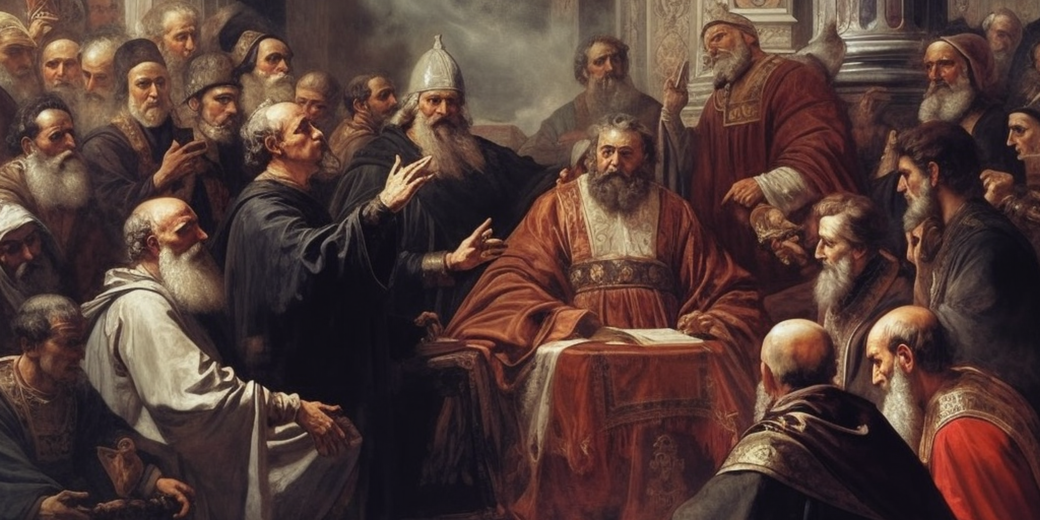 >
>
The Doctrine of Salvation (Soteriology): From Augustine to the Reformation
The nature of salvation and human sinfulness has been a central theological concern throughout Christian history. Early theologians like St. Augustine and later reformers such as Martin Luther and John Calvin wrestled with profound questions about how sinful humanity can be reconciled to a holy God.
Augustine’s Contributions
Augustine of Hippo (354–430 AD) shaped much of how the Western church understands original sin and grace. His assertion that humanity is born in sin and utterly dependent on divine grace for salvation became a defining theological stance. His words continue to resonate today in Christian teachings on human frailty and God’s free grace. Personally, Augustine’s reflections helped me to see that even in my deepest moments of failure, I am never beyond the reach of God’s unmerited grace.
The Reformation’s Shift in Soteriology
The Protestant Reformation of the 16th century, led by figures like Martin Luther, marked a significant shift. Luther’s doctrine of justification by faith alone emphasized that human effort, ritual, or works cannot earn salvation; it is provided solely by God’s grace and received through faith. This understanding had not only a theological impact but also a social one, as it democratized the Christian faith, allowing individuals to approach God without the mediation of the clergy or institutional church.
“For we hold that a person is justified by faith apart from works of the law.” — Romans 3:28
The ripple effect of the Reformation is seen in diverse Christian denominations today, each with varying views on salvation. While many Protestant traditions maintain “sola fide” (faith alone), others like Catholicism integrate this with the importance of works and sacraments to a life of faith. Each perspective adds a richness to the broader Christian conversation, and studying these different views helped me understand both the complexity and the beauty of God’s redemptive work.
<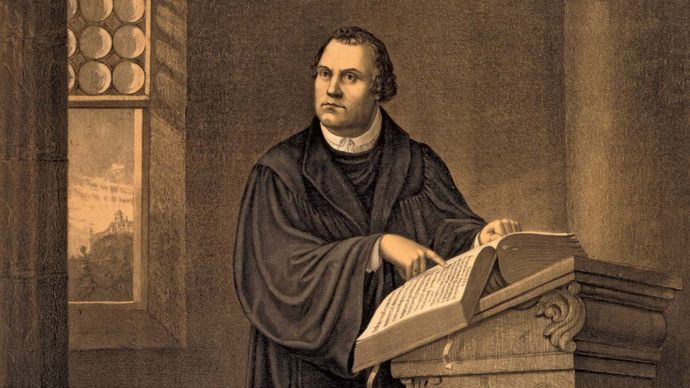 >
>
Theological Divergence: Different Perspectives Over Time
Throughout Christian history, theological developments have often led to new movements and differences in belief, which have helped to shape the global Church as we know it today. Sometimes, unfortunately, it also led to divisions. From the parables emphasized by the Eastern Orthodox to the Reformed doctrines of grace central to Protestantism, Christianity continues to wrestle with diverse interpretations.
Biblical Interpretation: The Split Between Catholicism and Protestantism
One of the significant issues that arose from the Reformation was the question of biblical interpretation. The Protestant principle of sola scriptura (Scripture alone) contrasts with the Catholic view that tradition plays an essential role alongside Scripture. This difference has shaped everything from liturgy to how we engage with Scripture in our daily lives. Where Protestants emphasize personal Bible reading and interpretation, Catholics focus on communal worship and the teachings of Church tradition.
Personally, understanding these differences has given me a greater respect for the breadth of Christian belief. It’s a topic worth reflecting on, especially in light of today’s numerous faith challenges that each tradition faces. Whether interpreting historical texts or considering modern theological developments, staying rooted in both Scripture and communal reflection helps me navigate my journey.
What These Theological Developments Teach Us Today
As we consider the profound theological developments that have shaped the history of Christianity, it’s worth reflecting on how these discussions continue to shape our faith today. In many ways, our questions about the nature of Christ, salvation, and biblical interpretation are still alive today, even in ways that might surprise us.
| Theological Development | Modern Implication |
|---|---|
| Trinitarian Doctrine (Nicene Creed) | Foundational for Christian worship and understanding of God’s relational nature |
| Salvation: Faith Versus Works | Impacts how we approach grace, salvation, and good deeds in daily Christian living |
| Biblical Interpretation | Guides how different Christian traditions engage with Scripture and tradition |
Concluding Thoughts and Call to Reflection
The theological developments throughout history have not only shaped the global Church but can also deeply inform our personal spiritual journeys. They challenge us to think critically about what we believe and push us to a greater understanding of God’s nature and purpose for us. In reflecting on these developments, I find a renewed purpose to dive deeper into Scripture and the rich tradition of Christian thought.
For further reading, I recommend exploring Augustine’s Confessions and Martin Luther’s The Freedom of a Christian, two foundational works that continue to speak profoundly to modern believers like myself.
Let us embrace the richness and diversity of our theological heritage as a means to grow in faith and deepen our understanding of God’s truth.
<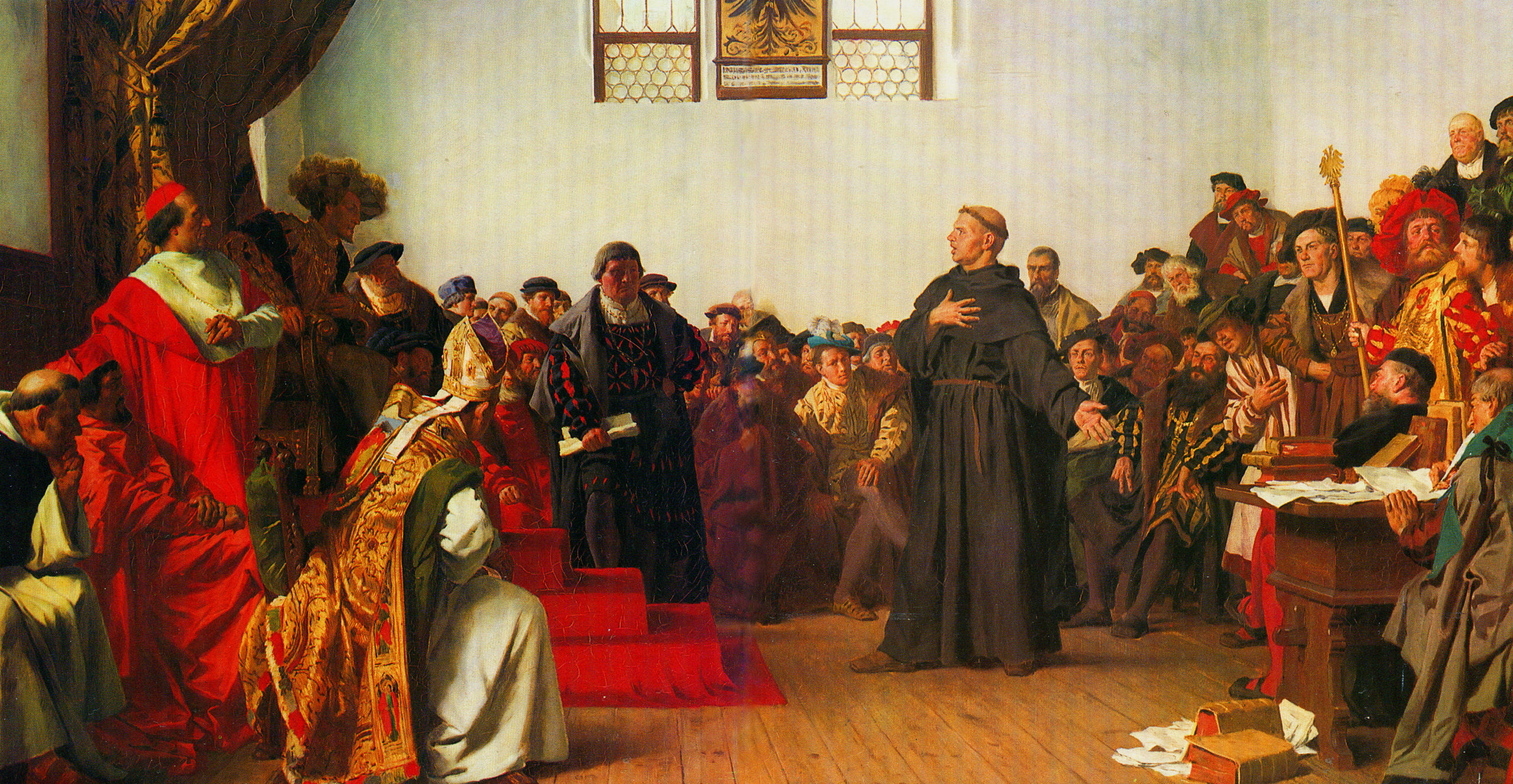 >
>
Focus Keyphrase: Key Theological Developments
“`
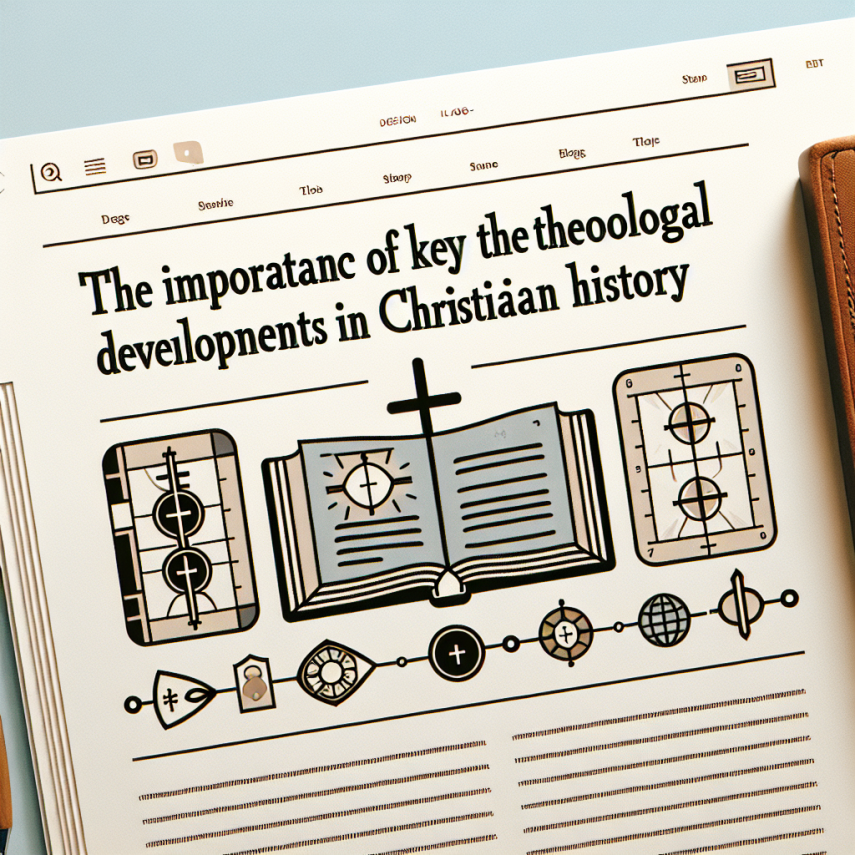
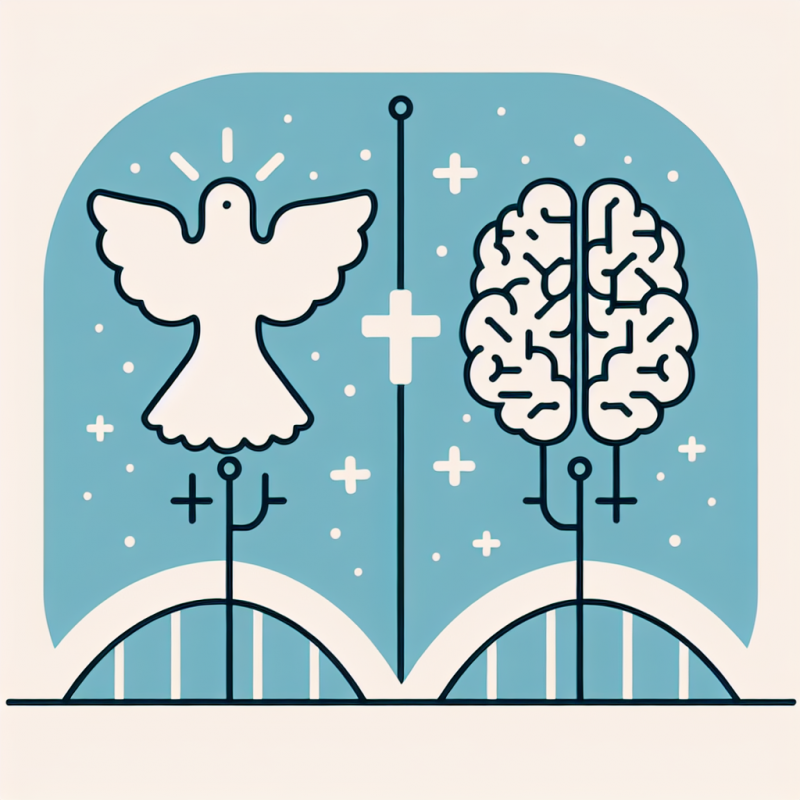


Thank you for reading! I wrote this article to share my thoughts and insights. I’d love to hear your feedback and discuss further in the comments!
This was a helpful read. Looking forward to more content like this!